Two companies making vaccines to help the world eradicate polio are failing to produce enough, so many countries should prepare to give lower doses to make stocks last, a group of experts has advised the World Health Organization.
With polio on the brink of eradication globally, the WHO wants to see a worldwide switch from the traditional “live” oral polio vaccine, which runs the risk of spreading the disease, to an inactivated vaccine that needs to be injected.
But WHO’s Strategic Advisory Group of Experts (SAGE), which meets twice a year, said a severe shortage of inactivated vaccine means many countries should use a fractional dose, via an intra-dermal rather than intra-muscular injection, allowing each dose to go twice as far.
“There are only two manufacturers of the vaccine and they are having some problems with production of the vaccine, and getting enough raw material of the polio virus,” SAGE Chairman Jon Abramson told reporters on a conference call on Friday (21).
Polio is a contagious viral disease which invades the nervous system and can cause irreversible paralysis within hours.
“Each time we hear that there’s a further reduction in the amount that can be anticipated, we have to make further adjustments,” Abramson said. “My hope is this problem can be solved by 2018. But I can’t promise that, obviously. It’s not something we can control.”
The two manufacturers are French drugmaker Sanofi Pasteur and Asia’s largest vaccine maker, Serum Institute of India Ltd, owned by the billionaire Cyrus Poonawalla.
A spokesman for Sanofi Pasteur said the company was on track to meet its commitments as part of its 2016-2017 delivery plan and should be able to supply more doses in 2018. No comment was available on Friday evening from Serum Institute of India.
WHO polio spokeswoman Sona Bari said that the production was about 40 percent below what had been requested, leaving about 50 countries without adequate supplies.
The economic savings of the polio program, between 1988 and whenever the disease is eradicated, were estimated at $50 billion (£41 billion), she said.





 Rihanna- Third time's the charm and she made sure we all knew itGetty Images
Rihanna- Third time's the charm and she made sure we all knew itGetty Images  Karlie Kloss - Black white and bump perfection in one flawless packageGetty Images
Karlie Kloss - Black white and bump perfection in one flawless packageGetty Images  Kiara Advani - Golden goddess meets Met Gala debut with Bollywood brillianceGetty Images
Kiara Advani - Golden goddess meets Met Gala debut with Bollywood brillianceGetty Images Zinzi Coogler- Oversized blazer bump on display rewriting maternity suiting rulesGetty Images
Zinzi Coogler- Oversized blazer bump on display rewriting maternity suiting rulesGetty Images









 Nick Jonas and Priyanka Chopra serve up sleek contrast with polka dots and cream tonesGetty Images
Nick Jonas and Priyanka Chopra serve up sleek contrast with polka dots and cream tonesGetty Images 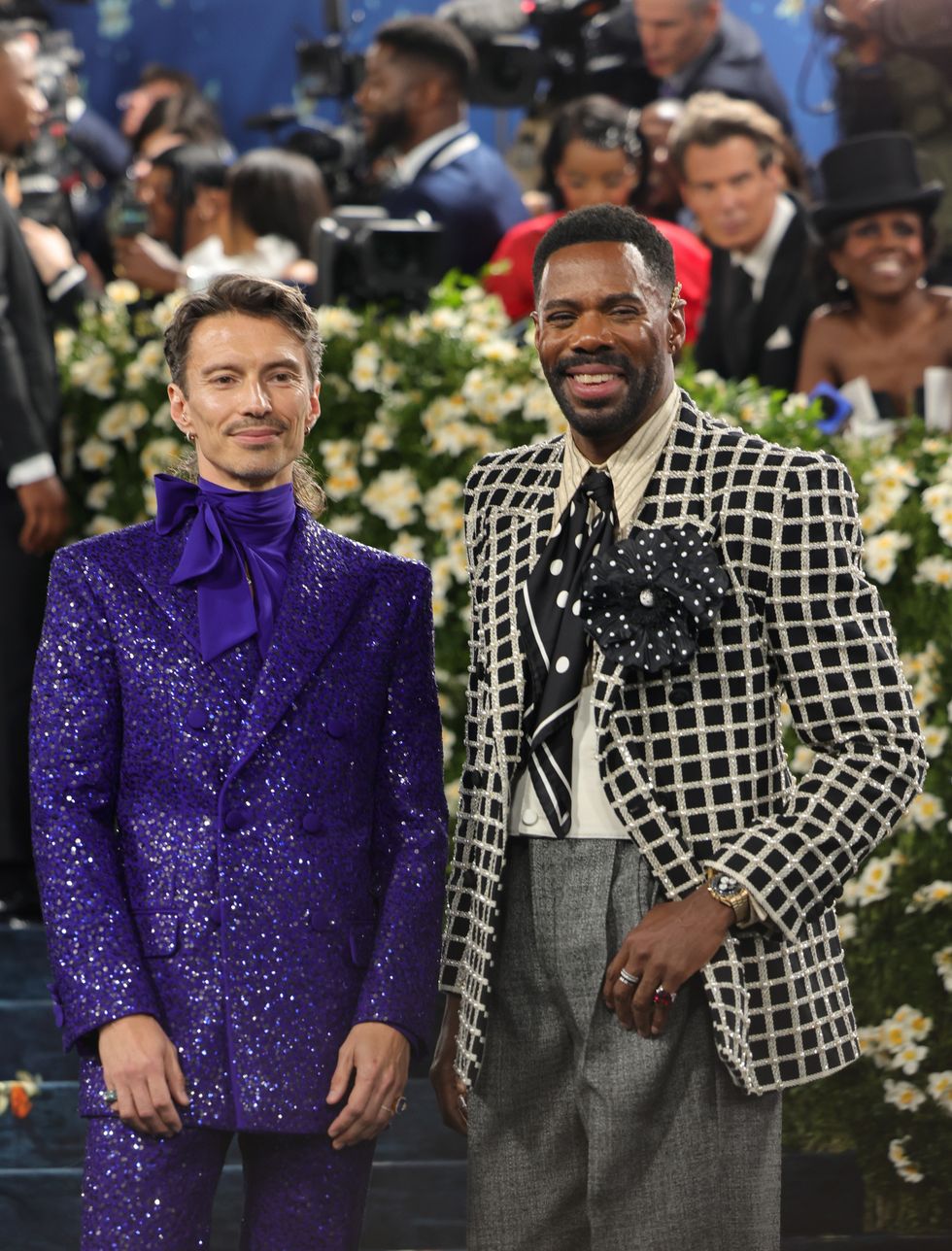 Colman and Raúl Domingo bring royal drama in bold tailoring and rich colourGetty Images
Colman and Raúl Domingo bring royal drama in bold tailoring and rich colourGetty Images  Gabrielle Union and Dwyane Wade redefine couple style with crisp monochrome magicGetty Images
Gabrielle Union and Dwyane Wade redefine couple style with crisp monochrome magicGetty Images Dua Lipa and Callum Turner blend vintage flair with modern edge effortlesslyGetty Images
Dua Lipa and Callum Turner blend vintage flair with modern edge effortlesslyGetty Images Pharrell Williams and Helen Lasichanh keep it cool in coordinated Louis Vuitton neutralsGetty Images
Pharrell Williams and Helen Lasichanh keep it cool in coordinated Louis Vuitton neutralsGetty Images Alicia Keys and Swizz Beatz turn heads in bold stripes and Harlem-inspired swaggerGetty Images
Alicia Keys and Swizz Beatz turn heads in bold stripes and Harlem-inspired swaggerGetty Images Simone Biles and Jonathan Owens light up the carpet with metallic shine and sharp suitsGetty Images
Simone Biles and Jonathan Owens light up the carpet with metallic shine and sharp suitsGetty Images Spike Lee and Tonya Lewis Lee mix relaxed cool with powerful purple tailoring Getty Images
Spike Lee and Tonya Lewis Lee mix relaxed cool with powerful purple tailoring Getty Images Usher and Jenn Goicoechea balance romance and structure with timeless charmGetty Images
Usher and Jenn Goicoechea balance romance and structure with timeless charmGetty Images Debbie Allen and Norm Nixon prove timeless love always dresses wellGetty Images
Debbie Allen and Norm Nixon prove timeless love always dresses wellGetty Images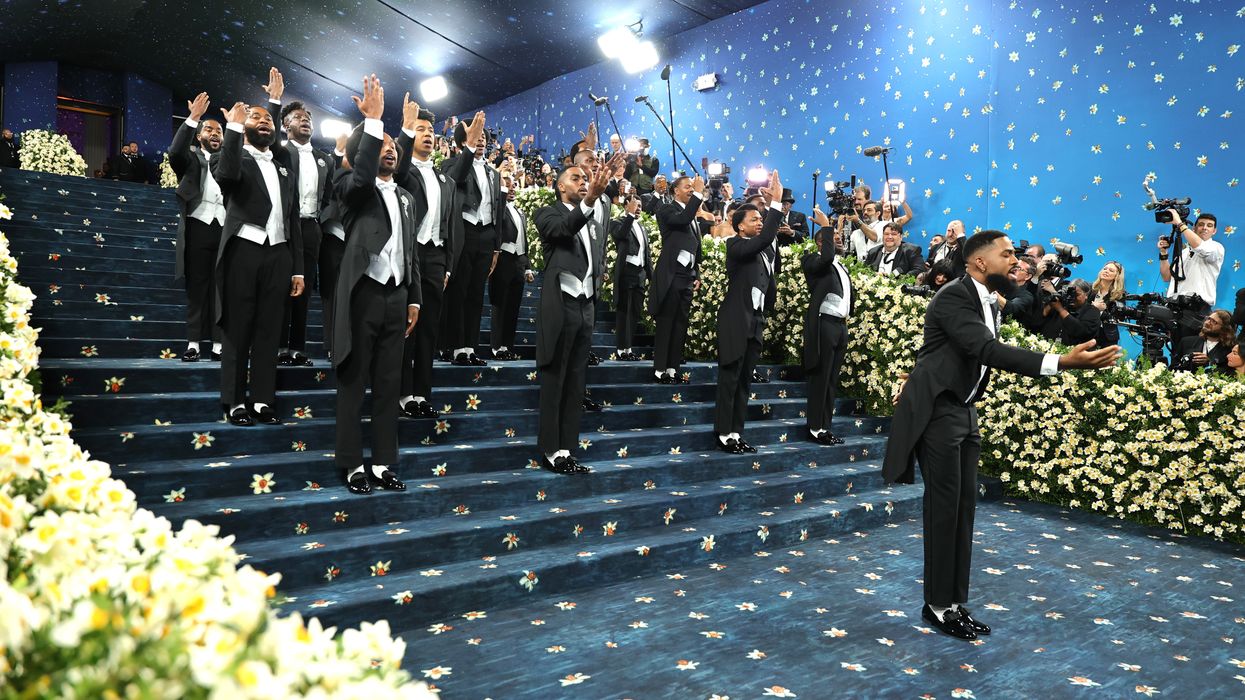
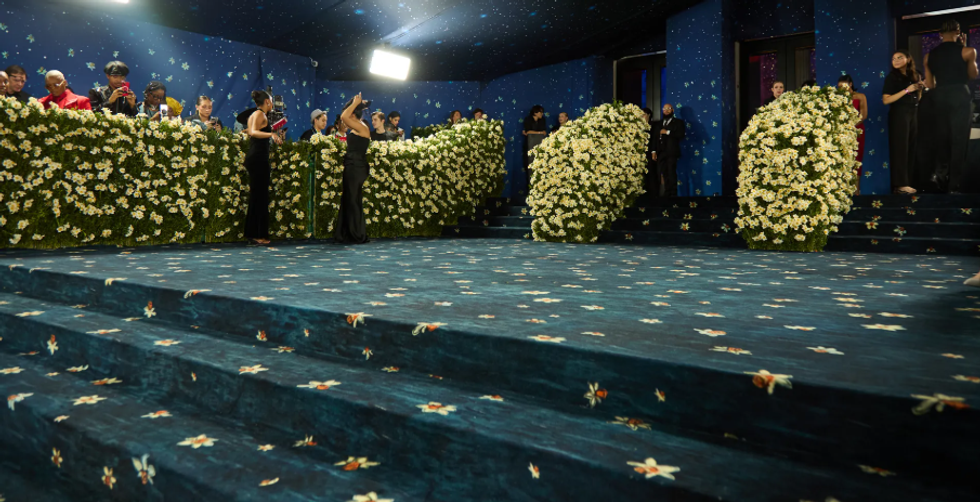 Neytt provided the foundation rugVogue
Neytt provided the foundation rugVogue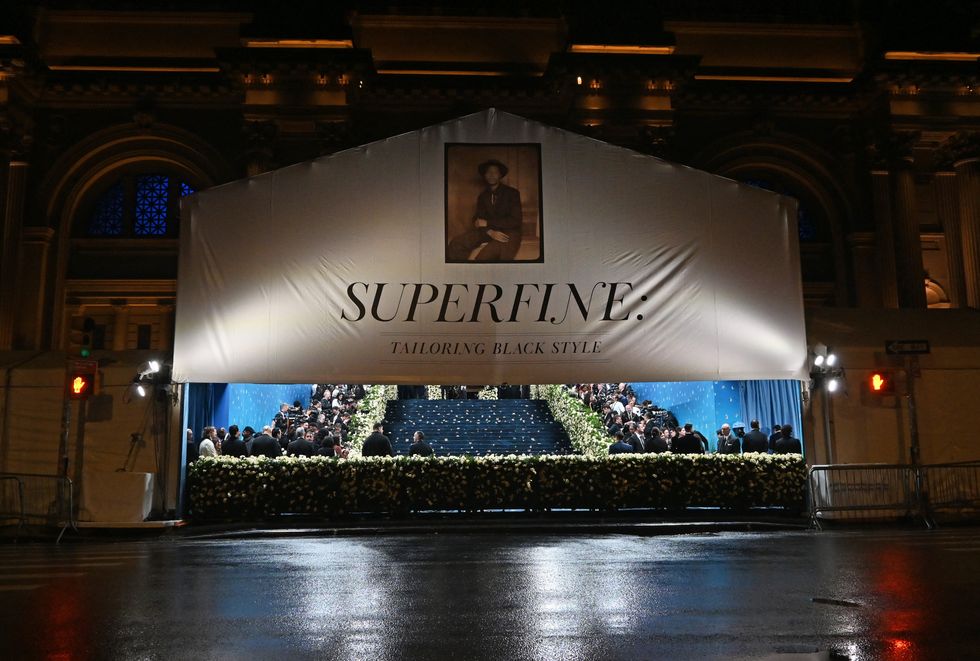 Neytt’s designs are known for their narrative qualityGetty
Neytt’s designs are known for their narrative qualityGetty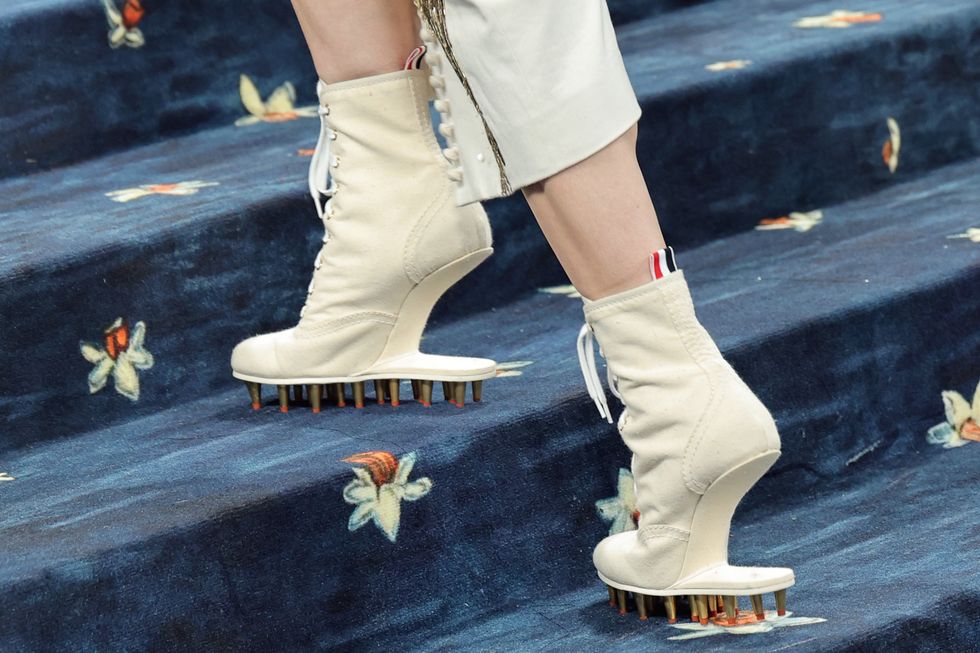 The story woven into every thread quietly told its own taleGetty
The story woven into every thread quietly told its own taleGetty